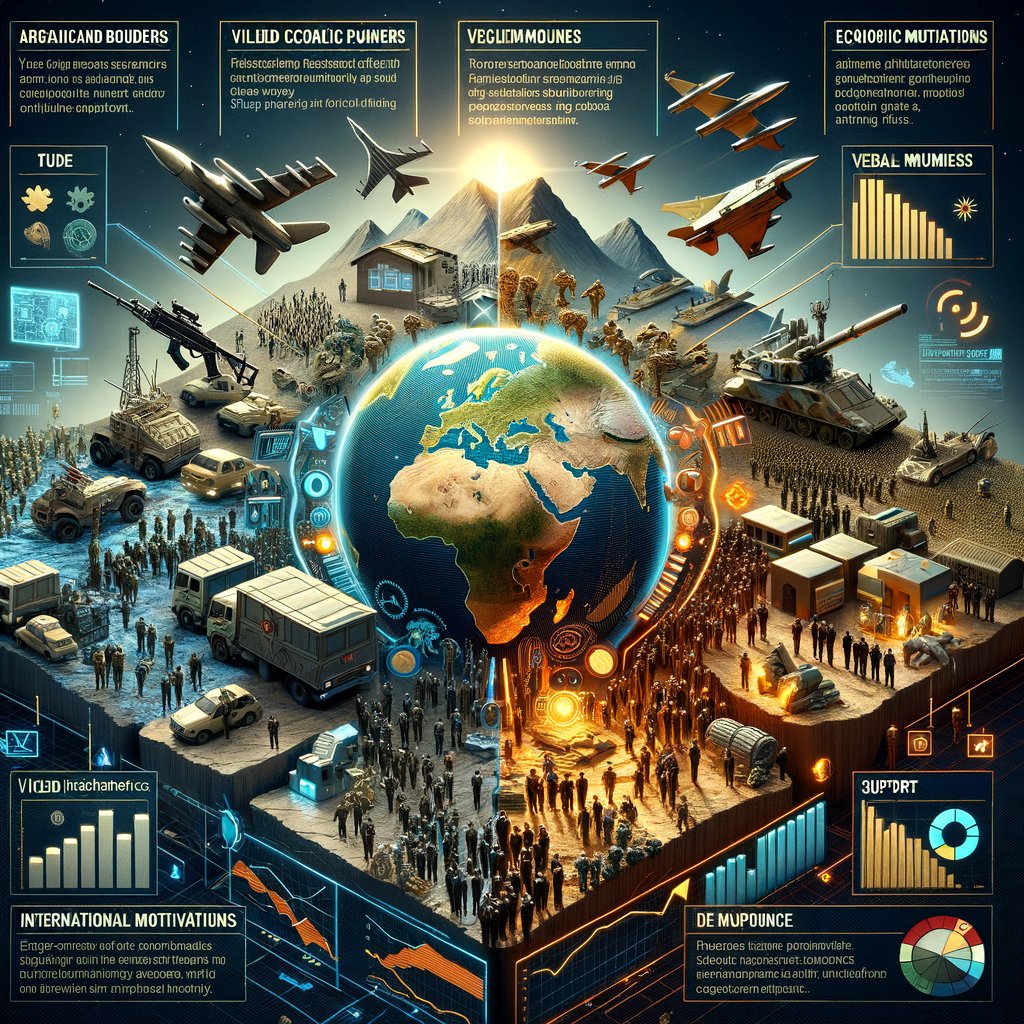Image created by AI
Escalating Tensions in the DRC: Rwanda's Role in M23 Advances and Regional Destabilization
Rwanda's involvement in the Democratic Republic of Congo's (DRC) ongoing conflict through support for the M23 rebel group is stirring up tensions reminiscent of the catastrophic Second Congo War, which spanned from 1998 to 2003 and resulted in millions of deaths. The resurgence of the M23, bolstered by Rwandan military assistance, poses a significant threat to regional stability and heightens the urgency for international diplomatic efforts.
In mid-February 2025, M23's control expanded into Bukavu, a major city in eastern DRC, following their previous occupation of Goma. This expansion not only underscores the group's growing influence but also casts doubt on DRC President Felix Tshisekedi's ability to manage the crisis. President Tshisekedi's absence from key peace talks and his reliance on sophisticated weaponry over structural military reforms have drawn widespread criticism.
The M23's stated aim is to protect the Rwandophone Tutsi community in eastern Congo, but their ambitions appear increasingly national, with aspirations to challenge Kinshasa's authority directly. Rwanda's President Paul Kagame has historically expressed interests in the eastern DRC, which are both political and economic, hinting at motives extending beyond mere border security.
Simultaneously, Uganda has ramped up its military presence in the region, deploying additional troops ostensibly to counter the Allied Democratic Forces though they are also moving towards areas controlled by M23. Uganda's and Rwanda's competitive dynamics in DRC, driven by both security concerns and economic interests, particularly in gold exploitation, has complicated the conflict landscape.
Moreover, Burundi has entered the fray, supporting its own factions within DRC and adding another layer of complexity to the regional power play. President Évariste Ndayishimiye of Burundi has voiced concerns about potential escalations, suggesting that the broader region could be at risk if tensions are not managed carefully.
The international community's response to Rwanda's actions has been tepid compared to the decisive measures taken during the 2012-2013 M23 conflict. Current efforts by countries like Germany and the United Kingdom, which involve suspending aid talks and threats of aid cuts, have yet to yield significant action. The internal divisions within the European Union, with countries like Belgium advocating for sanctions against Rwanda while France blocks them due to strategic interests in Mozambique, underscore the complexities of aligning international responses to such crises.
The immediate consequences of the M23 insurgency have been dire. Over 700,000 people have been displaced since the beginning of the year due to the conflict. The World Health Organization has issued warnings about a looming public health crisis, exacerbated by M23's orders that have forced tens of thousands from refugee camps, further destabilizing the region.
As M23 continues to advance with Rwanda's backing, the imperative for a coordinated and effective international diplomatic intervention becomes ever more critical. Without it, the DRC could once again descend into widespread conflict, undoing years of hard-won peace and development.










